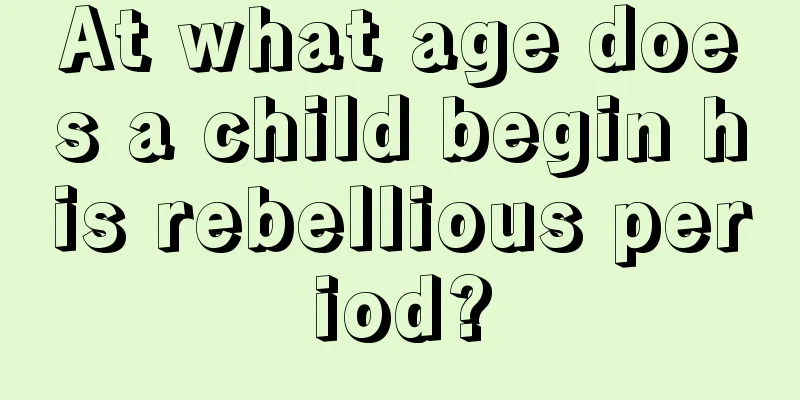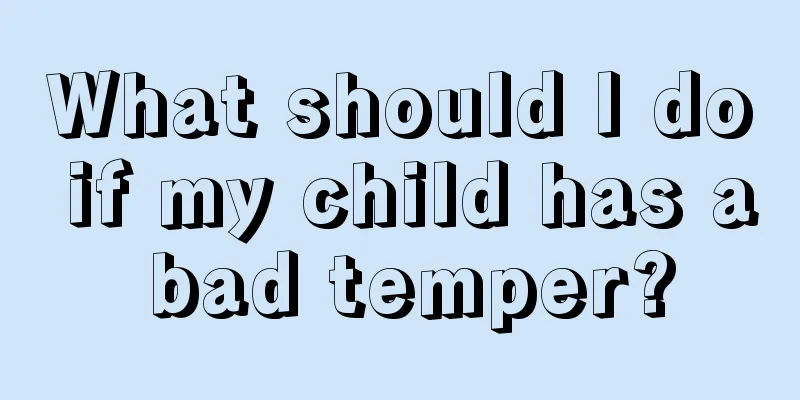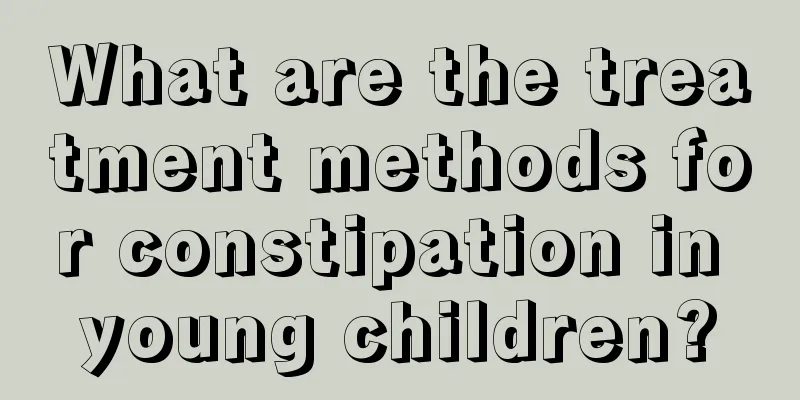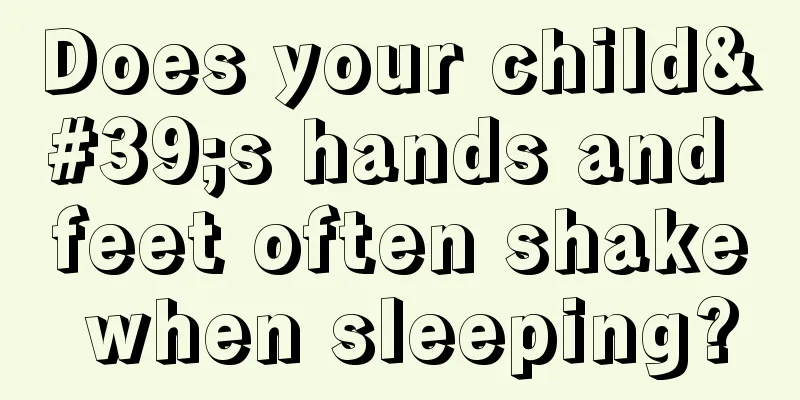At what age does a child begin his rebellious period?

|
Children have a rebellious period, and there are three stages from small to large, corresponding to different age groups. When children are in the rebellious period, they will always go against their parents. If the parents tell them to go west, the children will insist on going east. Anyway, they will quarrel with their parents. Parents need to pay special attention to their children's rebellious period. Here is a detailed introduction to the age range of children's rebellious period. Experts point out that people have three rebellious periods. The rebellious behavior that appears at the age of two is a manifestation of the first rebellious period in life, called the "baby rebellious period"; around the age of seven, it is the second rebellious period in life, called the "children rebellious period"; between the ages of 12 and 18, it is the third rebellious period in life, which is the most common and well-known "youth rebellious period." Different rebellious periods have different personality development and psychological and physiological development characteristics, and parents' coping methods should also be different. Children in their rebellious period always treat adults with a critical attitude, which is often harsh and merciless. They are no longer as easy to educate as before. After entering the rebellious period, quite a number of children seem to refuse to listen to their parents' education. If we fail to treat children from a developmental perspective, fail to respect them, and fail to sympathize with their emotions, then the bond that once existed between us and our children will easily break. If we continue to ignore this, the situation may get worse and worse, or even become irreversible. When children enter the rebellious period, parents can no longer shape their children rigidly according to their own model, because this will cause the children to rebel. Children in their rebellious period want us to put them on the same footing as adults and look at the problem. They expect to be involved in our decision-making and want to make their own decisions. If we don't want to be abandoned by our children, we must constantly change our roles. We cannot always indulge our children, nor can we always blame them. Instead, we should stand on the standpoint of understanding our children and seriously reflect on our own educational methods. Only in this way can we maintain a harmonious parent-child relationship and improve a gradually deteriorating parent-child relationship. This is also our responsible approach to our children's growth. Stubborn parents cannot raise outstanding children. 2How do parents educate their rebellious children? 1. Encouragement and trust are silent support for children of this age. Editor's recommendation: What are the manifestations of the rebellious period? 2. At this stage, parents can no longer use beating, scolding, or humiliation to educate their children. Parents should continue to be friends with their children, actively find common topics with their children, and integrate into their children's world. Parents can also try to communicate with their children about each other's problems, let the children know their inner thoughts, and then try to help them come up with ideas. This can make the children think that their parents will rely on them and conform to the children's "adult" ideological development. Talk to your child on an equal footing, understand which communication methods your child is dissatisfied with, and explore new communication methods together. You can also understand the reasons why your child is unwilling to communicate, and let your child know your true thoughts to avoid misunderstandings and escalate conflicts. 3. Different children will show different behaviors during their rebellious period: most children in their rebellious period are those with poor academic performance. Students with poor academic performance are more likely to do crazy things during their rebellious period, while those who study well will not show excessive rebelliousness. |
<<: Can myopia in a six-year-old child be cured?
>>: What is missing from children's molars
Recommend
What should I do if my child has blisters on his fingers?
When we are splashed with boiling water or scaldi...
Why does a child’s penis become red and swollen?
If a child's penis becomes red and swollen, p...
How to train children's concentration?
In life, many children have varying degrees of in...
Does the smell of plaster affect babies?
Plasters are the most commonly used medicine for ...
What are the symptoms of a rash in children?
Generally, children will have a fever for several...
How to care for a baby with a high fever and cold hands and feet
Babies are the apple of their parents' eyes. ...
Child with headache
If children have symptoms such as headaches, pare...
Why do people have seizures?
Cold and fever are symptoms of illness that peopl...
Why does my child's tongue hurt?
Traditional Chinese medicine can observe a person...
What’s going on if my baby has white spots on his throat and a fever?
When many babies are very young, they may often g...
What should I do if my baby falls and gets a bump on the back of his head?
Babies are quite active, so they can easily fall ...
How to treat bedwetting in a teenager
It is normal for children to wet the bed when the...
Why do children keep yawning?
We will find that children yawn shortly after the...
Why does my seven-month-old baby smile less?
Some babies smile rarely or not at all at seven m...
What should I do if my child suddenly walks with a limp?
When children first start learning to walk, they ...









